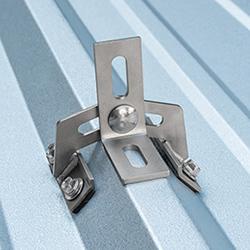IMCA CALLS FOR OFFSHORE WIND COMPETITIVENESS PROGRAMME
A week after launching the International Marine Contractors Association's (IMCA's) newly updated Renewables Contracting Principles (IMCA LCIC 014) with the call for industry collaboration essential to address supply chain losses, IMCA's CEO, Allen Leatt spoke yesterday (7 February) at the Offshore Wind Journal Conference in London with one of his recommendations being the formation of LOWIC: Leading Offshore Wind Industry Competitiveness programme, saying: "IMCA is keen to contribute to this with others".
IMCA CALLS FOR OFFSHORE WIND COMPETITIVENESS PROGRAMME
A week after launching the International Marine Contractors Association's (IMCA's) newly updated Renewables Contracting Principles (IMCA LCIC 014) with the call for industry collaboration essential to address supply chain losses, IMCA's CEO, Allen Leatt spoke yesterday (7 February) at the Offshore Wind Journal Conference in London with one of his recommendations being the formation of LOWIC: Leading Offshore Wind Industry Competitiveness programme, saying: "IMCA is keen to contribute to this with others".
In a hard-hitting presentation ‘Wind Targets at Risk', he looked at offshore wind CAPEX, the difficult economic situation being faced by OEMs and contractors and the fact that increased costs put Final Investment Decisions (FIDs) at risk and at the possible reasons for the current state of affairs saying: "It is not sustainable, it requires an economic reset and normal returns by reducing costs with collaborative solutions and risk reallocation.
"This is nothing new" he said, looking back to the 1990s when a similar situation arose with oil and gas development at risk due to high costs. "This led to the creation of a new initiative - CRINE: Cost Reduction in the New Era which saw operators and contractors collaborating to take out unnecessary costs; and reallocation of project risk and reward. Leading to the formation of a LOGIC: Leading Oil & Gas Industry Competitiveness programme.
"What we need in the offshore wind industry is a new relationship amongst the wind stakeholders: government, developers, banks, insurers, OEMs, and contractors," he added. "We need a LOWIC: Leading Offshore Wind Industry Competitiveness programme. We have taken the lead to start the dialogue and developed a set of 28 Contracting Principles for industry to use.
"Contractors are well used to taking project risks, which have limited upside but cannot have unlimited downside. For this industry to be sustainable it needs to be economically sustainable for all stakeholders."
IMCA's "At A Glance" publication on the Contracting Principles which was distributed to delegates at the event can be found at https://tinyurl.com/fe25wk72
ENDS
Featured Product

